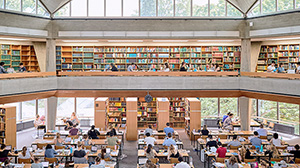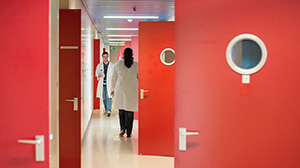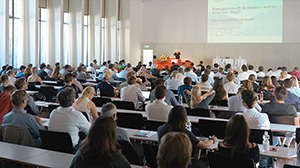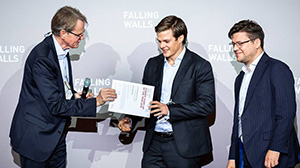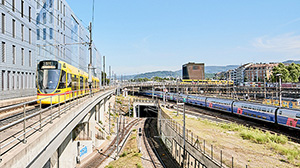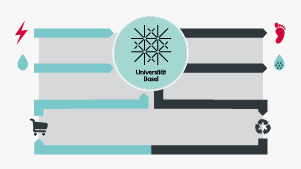Sustainability Report 2018
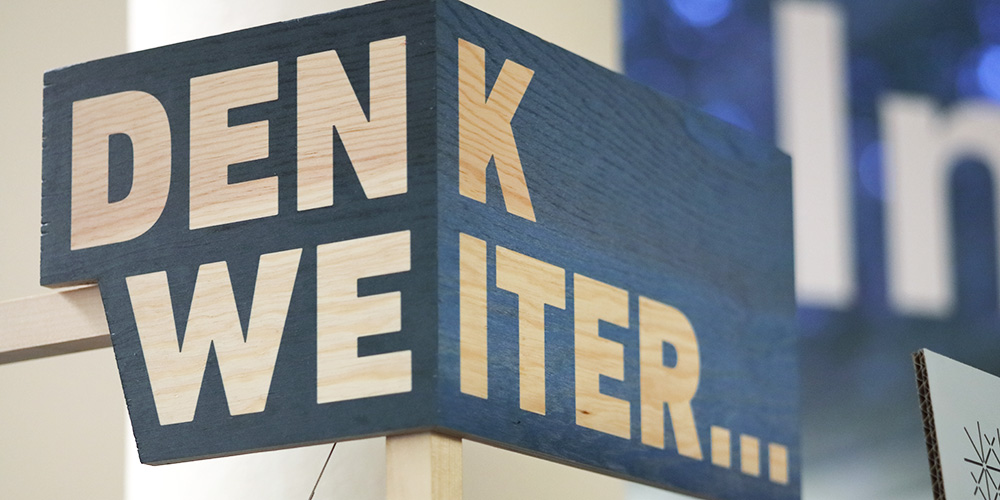
The University of Basel’s first Sustainability Report summarizes the key facts and figures for sustainability of its operations, research and teaching, broken down into nine focus areas. The University of Basel will then publish sustainability reports every two years to provide a transparent overview of sustainability-related aspects and to develop evidence-based practices.
Content of the report
The Sustainability Report is divided into nine main topic sections that have been identified as especially pertinent to the university. A separate chapter provides insights into the University of Basel’s contributions toward achieving the UN Sustainable Development Goals. The report is based on the data from 2018. Based on the first report, goals and actions were developed in the respective focus areas. Detailed information on the methodology and system limitations are covered in the background report.
Foreword by the President
The University of Basel is committed to sustainability and wants its research, teaching and operations to make a major contribution to solving the challenges facing society on the regional, national and global level, including those described in the United Nations Sustainable Development Goals (SDGs). This is why our university has made sustainability an integral part of its strategy. The Sustainability Office, which was founded back in 2012, functions as a center for launching and coordinating numerous projects. This report presents the first general survey of sustainability-related activities at the University of Basel.
The degree programs offered by the University of Basel to address sustainability issues are both broad and deep in their scope. Classes on sustainability-related topics are offered in 18 degree programs, four of which include explicit sustainability modules. In addition, the interdisciplinary master’s degree program in Sustainable Development offers the unique possibility to earn a bona fide degree specifically in this field. Our sustainability and energy research is characterized in particular by its transfaculty and interdisciplinary focus, the results of which provide an important basis for making decisions about policies and in the public sphere. These include, for example, the numerous contributions made to Switzerland’s renewable energy transition by the Competence Center for Research in Energy, Society and Transition (SCCER CREST).
In 2018, prominent figures from the fields of politics, economics and society discussed sustainability-related issues during 40 public events. The latest innovation activities at the University of Basel also aim to ensure that knowledge generated at the university benefits society at large even more and boosts the regional economy. The development of a flourishing start-up community at the site in Allschwil is one impressive sign of this.
Sustainability is continuously being integrated into the structures and processes on campus as well. The ongoing collection of data on energy and water consumption or greenhouse emissions, for example, provides a basis for sustainable resource management.
The report illustrates that sustainability is a key value to which our university is committed, and that it plays a role in research, teaching and operations. But even if we are already on the right track in many areas, we want to keep improving. The Sustainability Report, which will be published every two years, offers an important instrument for demonstrating achievements in the area of sustainable development at the University of Basel.
Prof. Dr. Dr. h.c. Andrea Schenker-Wicki
President of the University of Basel
Further links and downloads
-
Sustainability Office


